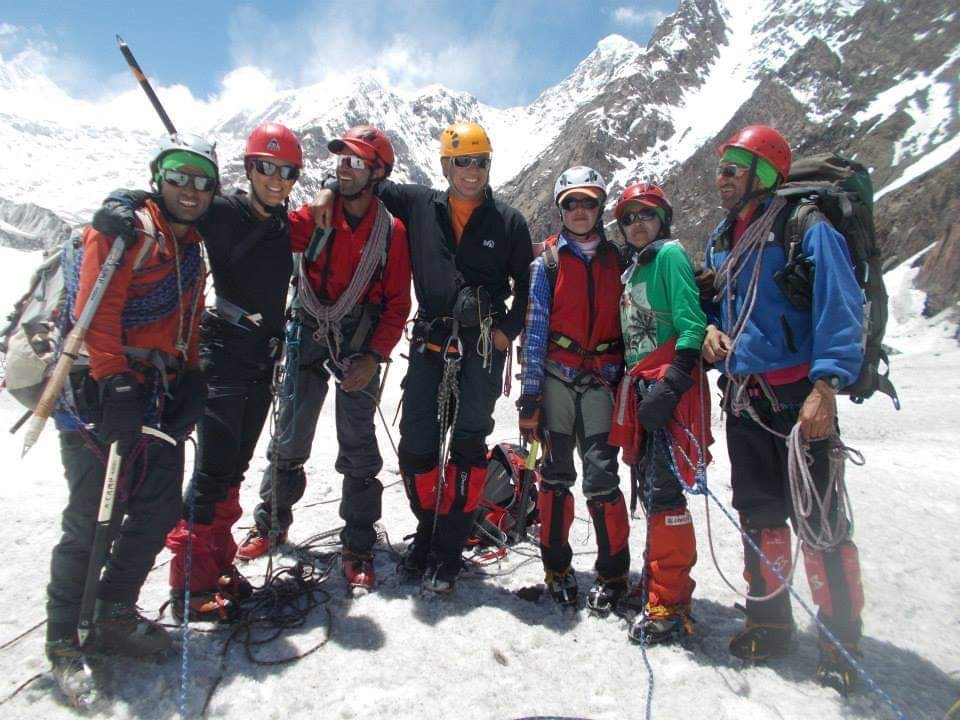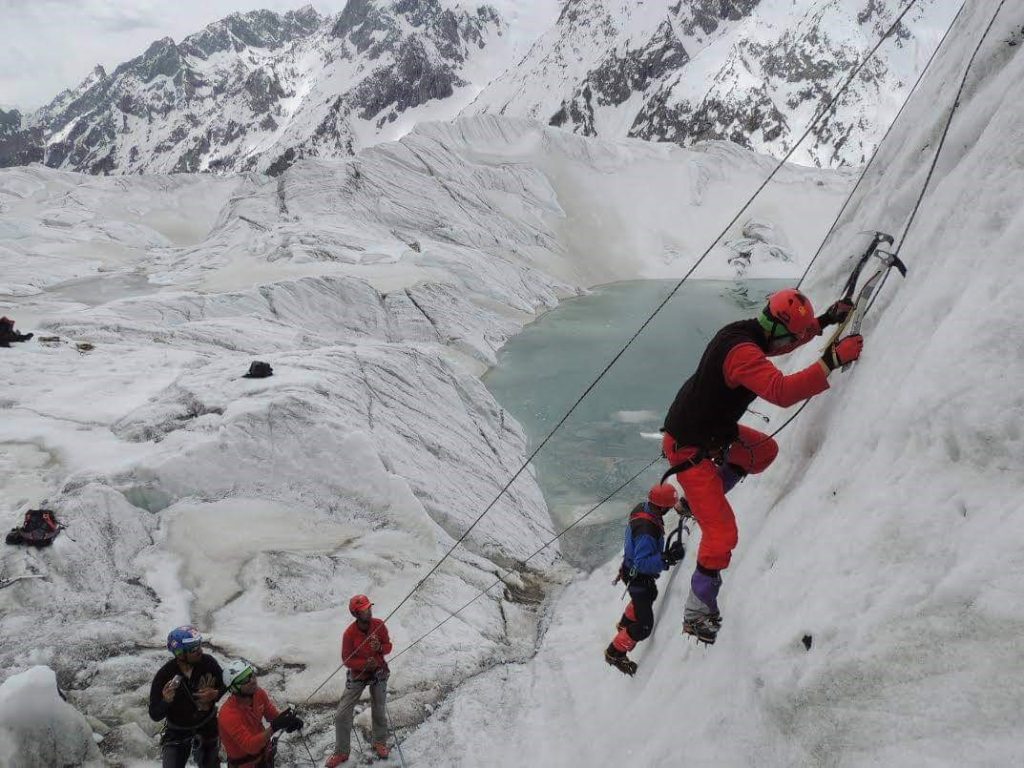Mountain Liaison Officers
by Muhammad Afzel Scherazi

A Mountain Liaison Officer is an officer seconded to a foreign mountaineering expedition visiting the Greater Himalayas for climbing or trekking at high altitude. It was very common in ancient times, even during the British Raj, for every mountaineering or scientific expedition to have a liaison officer, whose main job was to assist the expedition, not only in urban areas but also in the mountains, to maintain discipline among the porters, sirdars and other members of the crew, to do their job well and not to cause difficulties for the visitors and vice versa. Liaison officers were mostly military officers who, at the time, had sufficient authority over the masses and enjoyed their respect. After partition in 1947, both Pakistan and India kept providing military liaison officers to foreign expeditions visiting the two countries. Moreover, Nepal after getting independent status also had liaison officers attached to foreign expeditions.
In Pakistan, military liaison officers were initially provided to assist expeditions, but also to keep a watchful eye on them from a security point of view, as Pakistan and India were sharing a long Line of Control and had military tensions over Kashmir and the Siachen issue. Later, the then Ministry of Tourism issued rules for mountaineering and trekking, in which civilian liaison officers were also allowed to accompany expeditions in open areas. In closed areas, military liaison officers were still operational. In these rules, sufficient regulations were introduced to control environmental pollution from expedition participants, as well as from porters and the accompanying crew. The liaison officer was the main watchdog, responsible for carrying out checks in the field and then reporting any infringements to the authorities, who would impose penalties. This organisation held up well, although there were many complaints from the expeditions about the behaviour of the liaison officers and their tendency to extort money from the expeditions. But at least there was someone on the ground to monitor and report breaches of the rules. However, some liaison officers used to leave the expedition and stay in Gilgit or Skardu, or even return to their original homes, leaving the expedition free to do as it pleased. This led decision-makers to withdraw the civilian liaison officers and replace them with trekking guides from the tour operators’ side. Another problem then arose: these trekking guides did not fulfil their duty to apply the rules and began to help customers in any way they could, mainly in order to get big tips at the end of the trip.

In the past, Mountain Wilderness, led by Carlo Alberto Pinelli, organised two high-level courses for mountain liaison officer instructors, attended by members of the Pakistan Army, the Alpine Club of Pakistan and Adventure Foundation of Pakistan. The army was responsible for providing military liaison officers in restricted areas, while the other two organisations provided civilian liaison officers. These courses not only helped to generate enough instructors for the three parties responsible for providing liaison officers, but also taught correct environmental awareness, how to negotiate glaciers and how to climb mountains. In this way, the liaison officers were able to become active members of the team and enjoy mountaineering, instead of waiting at the base camp, afraid to move and trapped there, or fleeing to civilisation, leaving the expedition to do as it pleased. Carlo Alberto Pinelli also wrote a remarkable article on liaison officers in the Himalayan Journal (https://www.himalayanclub.org/hj/56/2/the-liaison-officers-school/).
At present, the open areas of Pakistan have no liaison officers, and trekking guides belonging to various private travel agencies are given a job they do not do and, as a result, the trekking trails and base camps in the mountains are polluted to an alarming degree.
After the introduction of the 18th Amendment, the provinces were given control over tourism. The Ministry of Tourism, which controlled tourism in the mountains of Pakistan, was abolished. This has led to a total disaster in terms of monitoring the situation in the Karakoram, Himalayan and Hindu Kush mountains, which have come under the control of the Gilgit Baltistan government, and the Swat and Kaghan mountains, which are under the control of the Khyber Pakhtunkhwa government. These governments need to be made aware of the role of liaison officers and revive it. Mountain Wilderness therefore intends to submit the issue to the Ministry of Climate Change and Environmental Coordination, which can help devise a mechanism not only to introduce civilian liaison officers at provincial level, but also to do something about training instructors and creating a guild to replace the trekking guides of the tour operators.